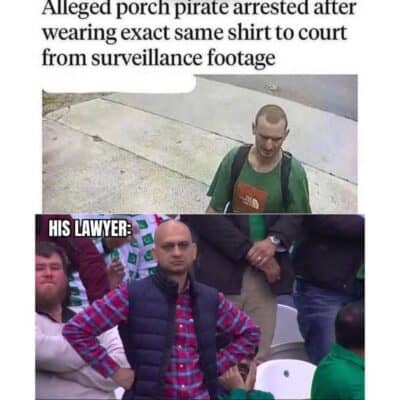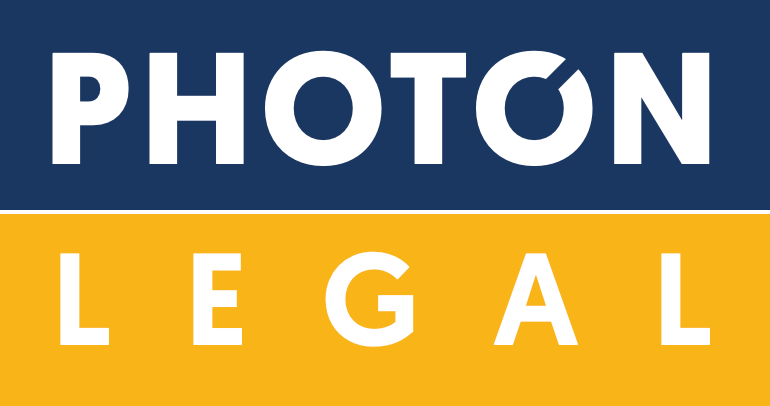
Introduction:
In the era of Internet, people are hooked to social media and its trends 24*7 if not more than that! One such trend popularly followed by the masses is of sharing, designing, communicating through “memes”. Memes are the best way to convey any sort of message, humorously. Typically, a “meme” consists of images, famous short video clips, GIFs along with some text. The content shared through these memes attracts general public because it closely relates to their daily life, and at times memes could also narrate certain ongoing situation in the society. These memes are basically light-hearted way of connecting with people. .
Wait, can you really forward that meme?
Sharing a meme within close group of friends, colleagues, family & relatives is a common practice and therefore, people believe that memes are not particularly owned by someone and are open to all Internet users. However, only a few people know that a newly created meme, through the person’s own intellect qualifies to be copyright protectable. The author of this originally created meme is usually also the owner of the copyright and any kind of usage or exploitation of the meme by a third party could attract copyright infringement. Similarly, memes that consist original images and/or video clips as the subject matter is highly likely to be protected as copyright by the owner of the image or video clips.
Copyright Protection for memes
Let’s put some light on the problems associated with sharing a meme. A newly created meme is protected under the ambit of “artistic works” provided under section 2(c) of the Indian Copyrights Act, 1957 which includes paintings, sculptures, drawings (including diagrams, maps, charts or plans), engravings, photographs, works of architecture and works of artistic craftsmanship. The provision also clarifies inclusion of photographs (images) for protection under ‘artistic works’. Therefore, any kind of usage, reproduction, distribution and/or sharing of a meme could attract section 2 (m) (i) of the Copyright Act that defines “infringing copy”. Therefore, a true owner of an original meme can always call upon the infringer to restrain usage and/or to pay damages, if their work is used without their permission.

Disappointed Fan Meme [Image source: ahseeit.com]
The above meme is from Pakistan vs Australia ICC Cricket World Cup 2019. During the match, a Pakistani team player Asif Ali dropped a catch and the cameras pulled away from the player and focused on a fan (shown in above image) in the stands watching with his hands on his hips. The person in the above meme, is Muhammad Sarim Akhtar. The video clip featuring Akhtar ’s disappointment over dropping of a catch went viral across the Internet like fire. There were numerous memes created using this image, the above meme is an example. This ‘disappointed’ expression of Akhtar has now been displayed at the World’s first Meme Museum in Hong Kong with the title “Disappointed Fan”. Yes, a meme museum does exist!
Moving further
In present example, copyright protection vests with the person who recorded Akhtar’s reaction and the creator of derivative work i.e. memes created using original images/videos, would be the copyright owners of the meme. Even though these memes are shared for the sole purpose of fun, there are instances in which copyright laws are attracted. Therefore, it is necessary to check if the image/video clip is in the public domain or is released under a creative commons license and/or available for licence on a stock photography site for a fee.
Posting or sharing a meme just for fun, or personal use, or non-commercial use or on your personal social media accounts is not much of an issue. However, if these memes are used for commercial purpose, like marketing or sale, it might face challenges from the copyright owner of the original image/video or creator/author of the original work (memes). This is mainly because commercial usage of meme would involve a financial gain angle and the owner of copyright would suffer losses due to unlawful use of their content.
Defenses against copyright infringement of memes
Under section 14 (d) (i) of the Copyright Act allows making and using of a copy of film, or image to form a part of it. Therefore, a prior permission for usage of image/video clips in the derivative work would help in using the meme without any claims of copyright infringement.
A commonly used defense for such copyright infringements is of a “fair use” doctrine. This particular doctrine is an exception to the copyright law that protects an original work. Section 52 of the Copyright Act provides certain acts or works that cannot be constituted as copyright infringement, which includes artistic, literary, dramatic or musical work. The Indian courts have established certain factors to be considered while determining “fair use” the factors as follows:
- Purpose and character of use- it has to be determined whether the work is of commercial nature or for a non-profit/educational purpose.
- Nature of the Copyrighted work
- Extent of use- whether a portion is used as a part of the Copyrighted work or whole copyrighted work is used
- Value of work- The effect of the use of such work on the market or value of the copyrighted work.
- Not a substitute for the original work
- Also, is the work should be transformative in nature, adding new meaning and message to the original work
‘Memes’ that are subjected to copyright infringement could be weighed under “fair use” doctrine. For instance, the first thing to ascertain would be, if the meme has been shared for spreading humor or is created by a company for sales and marketing purpose.
Conclusion
Next time you think of using a meme or any other content available on the Internet for your social media post or business marketing campaign, you might want to make sure the ownership and licensing rights of the content. Because repercussions of a copyright infringement claim do not go well with the infringer’s reputation or with his finances. Not to mention, as a company with a reputation to protect, funds to look after and pay damages that may be claimed, you’ll be at target more than an amateur creator sharing memes with his friends on social media. It’s important to protect yourself by safeguarding other’s copyrights.
Therefore, its crucial to learn about the usage rights even when you own a license for an image to be used, are you allowed to make changes in the image? Can you use the image commercially? Are you supposed to accompany the image with a copyright notice? It’s always better to learn about what you are getting yourself into. At Photon Legal, we assist our clients copyright their original work and restrain any misuse of their copyrights with exceptional strategies. Write to us at photon.ip@photonlegal.com to know more about copyright protection.
Found our blog interesting? Here are few more blogs you would enjoy reading:
- Role of Copyright Societies in the Music Industry- https://qma.554.myftpupload.com/role-of-copyright-societies-in-the-music-industry/
- Can Hashtags be Trademarked?- https://qma.554.myftpupload.com/can-hashtags-be-trademarked/
- What are the Rights of a Singer?- https://qma.554.myftpupload.com/what-are-the-rights-of-a-singer/
- The Reality of Indian Music Industry- https://qma.554.myftpupload.com/the-reality-of-indian-music-industry/

